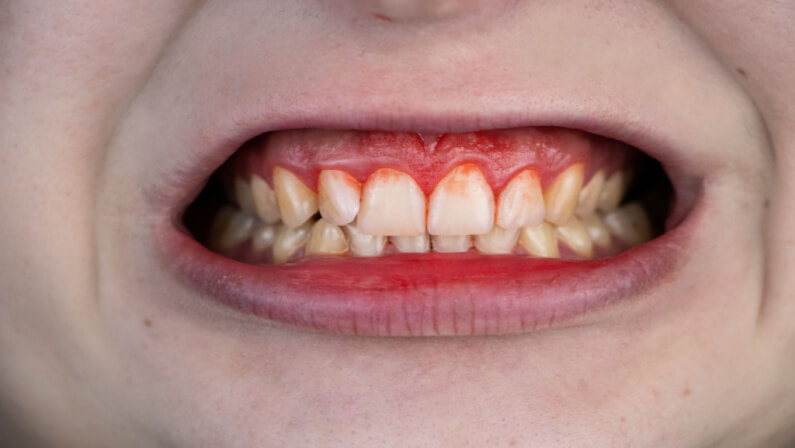If you’ve ever had a tooth fall out, you know how frustrating it can be. Losing a tooth can cause problems with eating and speaking, and it can also affect your self-esteem. When you get dental implants, you’re usually told that they’re a permanent solution to tooth loss. But in some cases, the implants can fall out.
When a dental implant falls out, it is important to seek professional help immediately. Do not attempt to reinsert the implant yourself, as this could cause further damage. Once you have seen a dentist, they will determine the best course of action to take. This may involve putting the implant back in place, or in some cases, replacing the entire implant.
This article will discuss the reasons that an implant may fall out, and what you should do if it happens.
Why Dental Implants Fall Out

Dental implants are one of the most popular teeth replacement options available today. They are strong, durable, and can last a lifetime with proper care. However, in some cases, the implant abutment, which is the part that protrudes from the gum line, can become loose over time and fall out. If this happens, you will need to see your dentist have it re-implanted.
There are several reasons why this may happen. One common reason is that the implant was not placed correctly in the first place. If the implant is not placed correctly, it will not have a strong foundation, and the screw can fall, and may eventually come loose.
Another reason for dental implants falling out is poor oral hygiene. If you do not brush and floss your teeth properly, bacteria can build up around the implant and cause it to become loose over time.
If you have a dental implant that has fallen out, it is important to see your dentist right away. They will be able to determine the cause of the problem and recommend the best course of treatment.
What Causes Dental Implants to Fall Out
When a dental implant falls out, it is usually due to one of nine things:
Low-quality materials
Dental implants can fail if the materials used are of poor quality. Low-quality materials may not be strong enough to support the implant, or they may not bond well with the surrounding bone. This can cause the implant to fall out. In some cases, poor-quality materials may also lead to an infection.
Improper implant placement
If the implant was not placed properly, it may not have had enough support, to begin with. This can cause the implant to loosen over time and eventually fall out.
Damaged nerve
One of the most common reasons for a dental implant to fail is damage to the nerve that runs through the jawbone. When this nerve is damaged, it can cause the implant to loosen and eventually fall out.
There are a few different ways that the nerve can be damaged. One is during the surgery itself. If the surgeon accidentally cuts or damages the nerve during surgery, it can cause problems down the road. Another way the nerve can be damaged is if there is an infection in the jawbone. This infection can cause inflammation and pressure on the nerve, leading to damage.
Improper fit of the implant
An improper fit of the implant can cause dental implant failure because it does not have enough support to stay in place. The other reason is that the surrounding bone may not be strong enough to hold the implant in place. In addition, if there is not enough tissue around the implant, it can loosen and eventually fall out.
Peri-implantitis
Peri-implantitis is an inflammation of the tissue around the implant.
Peri-implantitis is caused by bacteria that gets under the gum line and attacks the bone around the implant. This can happen soon after the implant is placed, or it may develop over time. Symptoms include redness and swelling of the gums, pain, and bleeding.
Smoking

Studies have shown that smokers are up to 20% more likely to experience implant failure than non-smokers. There are a few reasons why smoking is such a big risk factor.
First, tobacco use can cause gum disease, which can lead to bone loss and eventually cause the implant to loosen and fall out. Second, smoking decreases blood flow, which means that the healing process after surgery will take longer and be less successful. Finally, the chemicals in cigarettes can actually break down the titanium in implants, causing them to fail.
Bone Density Loss
A dental implant is a metal post that is surgically placed into the jawbone to act as a replacement for a missing tooth. The metal post fuses with the jawbone and acts as a strong foundation for an artificial tooth. However, if the bone density around the implant starts to decrease, it can cause the implant to loosen and eventually fall out.
There are many reasons why bone density loss can occur. One common reason is due to periodontal disease. Periodontal disease is a bacterial infection of the gums that break down the bone and connective tissue around teeth. This can lead to bone loss and eventually cause an implant to fall out. Other causes of bone density loss include osteoporosis, trauma, and certain medications.
Poor oral hygiene
Poor oral hygiene can also lead to implants falling out. If plaque and tartar are not removed from around the implant, it can cause irritation and inflammation of the gums which can eventually lead to the loss of bone and tissue support, causing the implant to fall out.
Medical conditions
There are a few medical conditions that can cause a dental implant post to fall out as follows:
- Osteoporosis. This causes the bones to become weak and porous, which can lead to the implant becoming loose and eventually falling out.
- Diabetes. This can cause problems with healing, and also leads to higher levels of sugar in the saliva, which can corrode the implant over time.
- Periodontal disease. This is an infection of the gums and tissues around the teeth and can cause the implant to become loose and eventually fall out.
Signs of a Loose Dental Implant?

When a dental implant falls out, it is a serious matter that requires immediate attention from an implant dentist.
There are several signs that indicate a loose implant, which include:
- Swelling and/or bruising around the gums
- bleeding from the gums
- pain at the implant site
- loose teeth near the implant
- difficulty eating or speaking
If you notice any of these signs, it is important to contact your dentist right away. Loosening of the implant can lead to further damage to the surrounding teeth, as well as infection. With prompt treatment, however, dental implants can be successfully re-secured and will continue to function just like natural teeth.
How to Take Care of Dental Implants
Dental implants are a popular way to replace missing teeth. They are usually made of titanium and are placed in the jawbone where they fuse with the bone over time. Dental implants can last a lifetime with proper care. Here are some tips on how to take care of your dental implants:
Follow dentists advice

See your dentist or oral surgeon for regular checkups and cleanings. They will be able to check for any problems with the implant or surrounding tissue.
Practice good oral care
Brush and floss your teeth regularly. This will help remove plaque from around the implant and reduce the risk of infection.
Avoid hard food
Avoid chewing hard and sticky foods or using your teeth as tools. This can damage the implant or cause it to become loose or fail. If you have an implant that is loose, contact your dentist right away.
Seek Expert’s Help
If a dental implant falls out it is important to seek professional help immediately. Dental implants are a serious medical procedure and should only be performed by a licensed professional.
If you are in Houston, Texas, Brownstone Dental is your place to go for dental implants. They are experts in the field and will work with you to ensure a successful outcome! If you have any questions or concerns about dental implants, contact Brownstone Dental today.